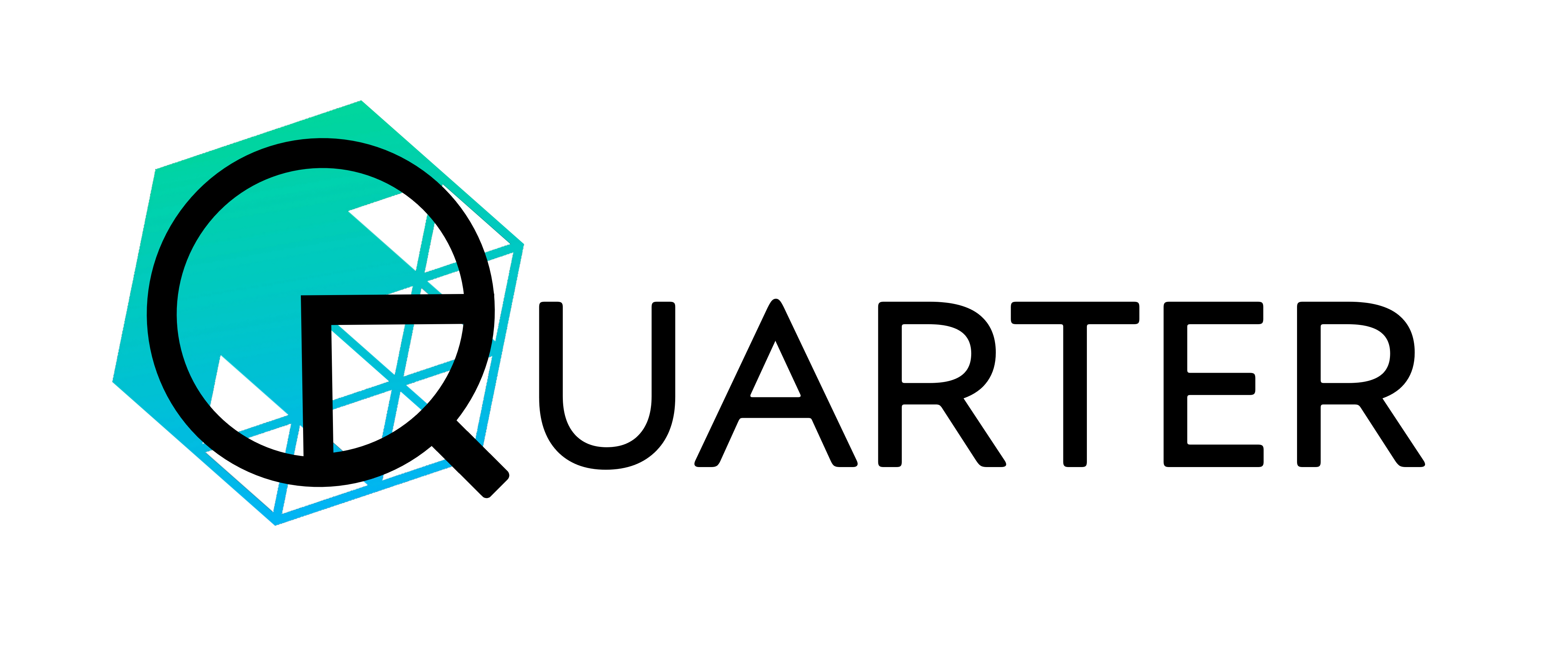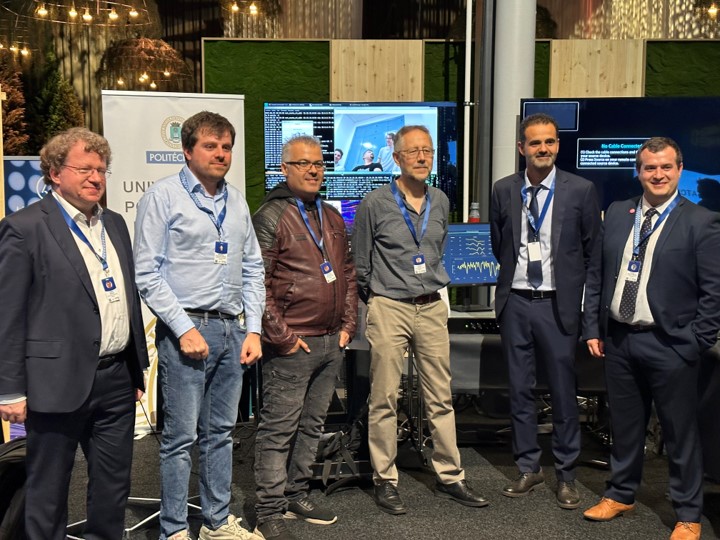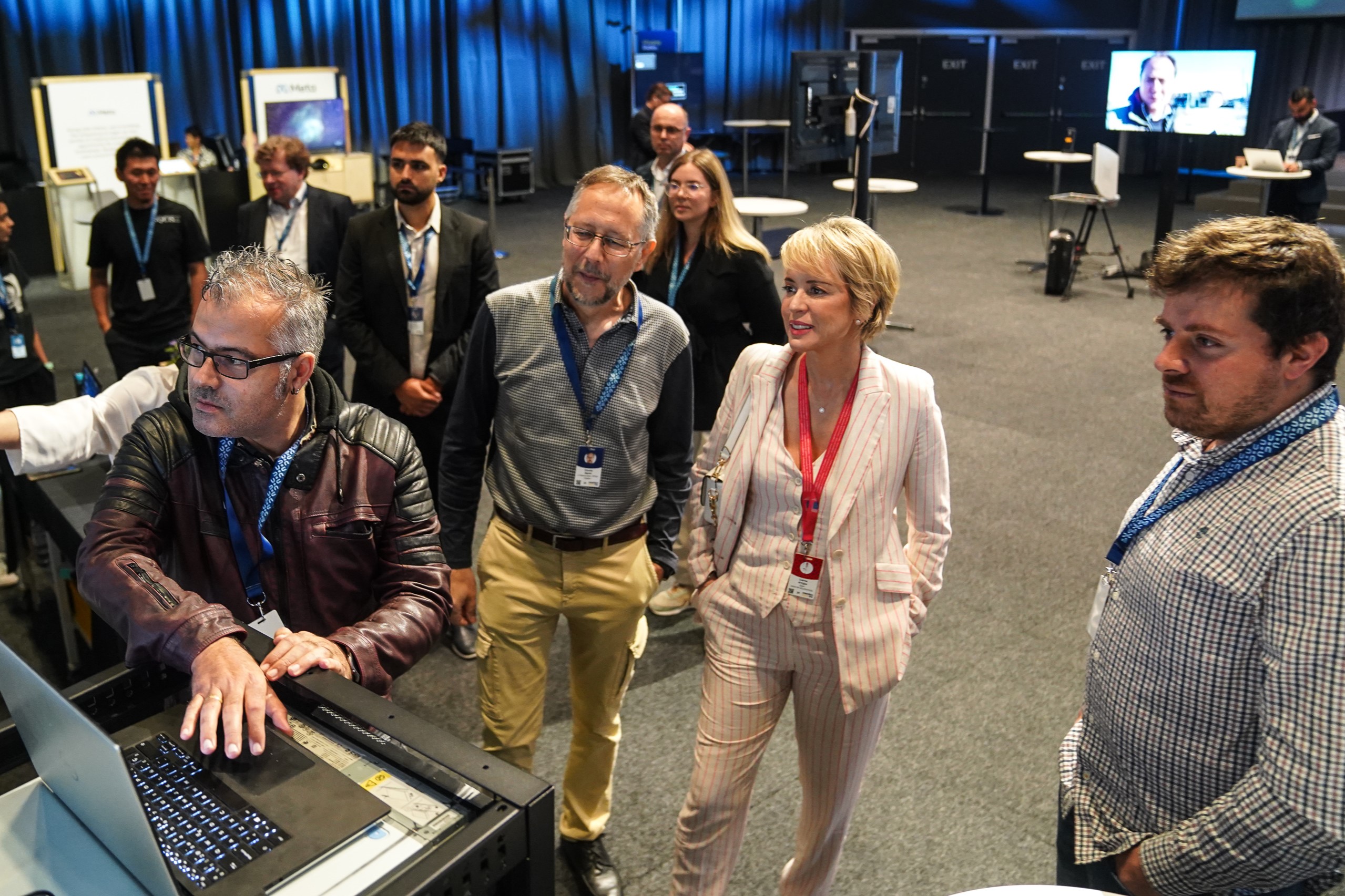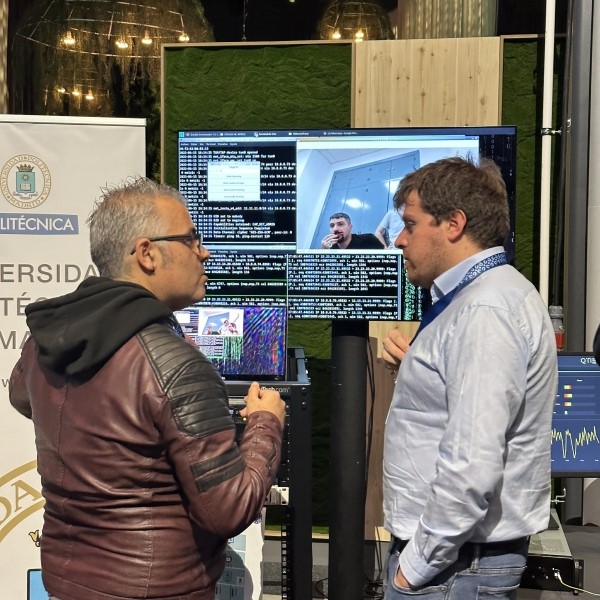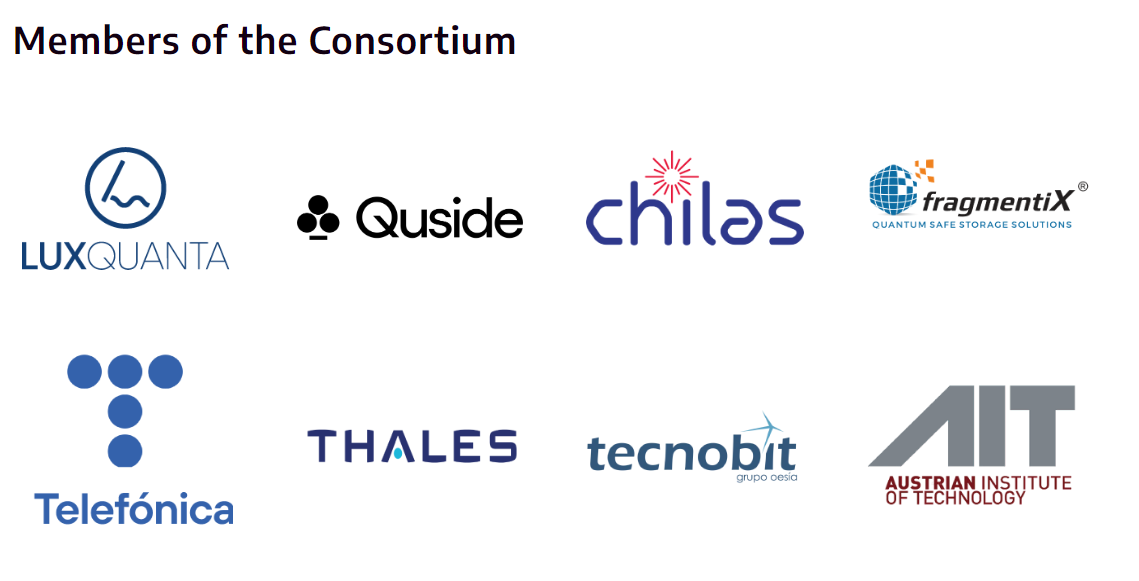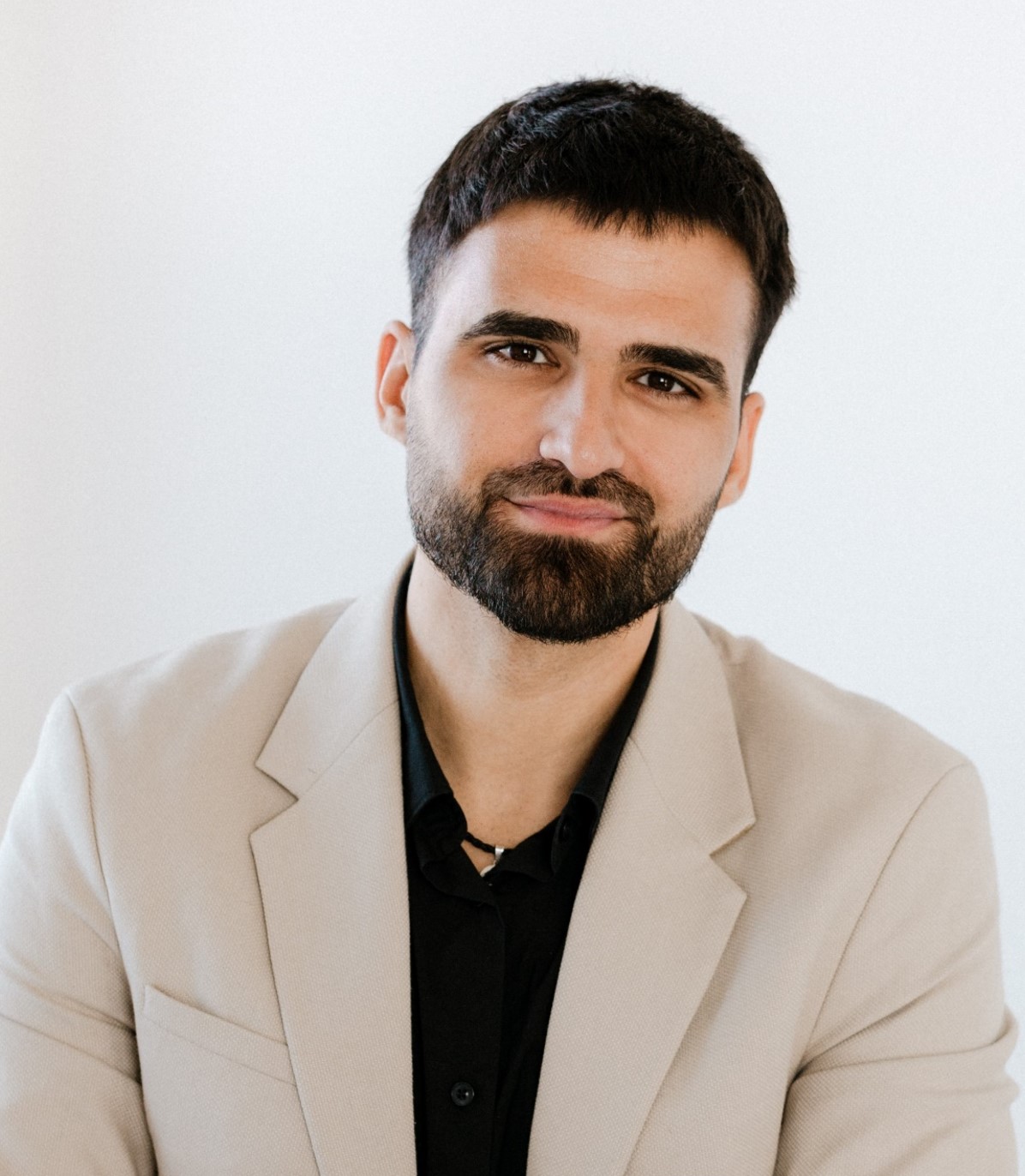STOCKHOLM DIGITAL ASSEMBLY
The DIGITAL Assembly was a unique gathering that brought together a diverse range of experts from the public sector, academia, industry, civil society, and members of the European Commission. This inclusive platform provided a rich and comprehensive perspective on the future of European digital development and how to realize Europe’s potential in the Digital Decade.
The Assembly consisted of five plenary sessions and an exposition area. Its strong focus was on positioning Europe as a technology leader and developing a competitive digital single market. Emphasizing cybersecurity throughout the Digital Decade was a vital aspect of the event.
One of the significant plenary sessions during the Assembly was dedicated to Quantum technologies, titled “Progress in Quantum Technologies.” Europe is determined to lead the global race involving Quantum Computers, Sensors, Metrology, and Cryptography, strategically positioning itself amid a turbulent geopolitical context.
During the Quantum plenary session, LuxQuanta, member and leader of the QUARTER consortium, participated in a live demonstration showcasing an actual use case of Quantum Key Distribution in what technically represented a “mini EuroQCI“. The demonstration involved a multivendor QKD network, including LuxQuanta, where a live video conference was conducted on stage using quantum-generated keys. The success of this demonstration was critical in raising awareness regarding the readiness of the technology and the importance of improving and maturing it to protect Europe’s critical data in front of the European Commission.
LIVE QKD DEMONSTRATION
The demonstration was organized by the European Consortium PETRUS, represented in the event by Deutsche Telekom, and gathered EU-27 companies, start-ups, and academic institutions all of them funded by the DIGITAL Europe Programme, including the EuroQCI QUARTER project
-
- The Swedish national QCI project, NQCIS https://nqcis.eu/ , represented by KTH and Ericsson
- The Spanish national QCI project, EuroQCI Spain https://www.itefi.csic.es/en/proyectos/euroqci-spain , represented by UPM
- The European project, EQUO https://equoproject.eu/ , represented by QTI and TELSY
- The Spanish project, QUARTER https://quarter-euroqci.eu , represented by LuxQuanta
- The German project, SEQRET https://seqret-project.eu/ , represented by Rohde & Schwarz Cybersecurity
- The Coordination & Support Action for the Digital Europe Programme, PETRUS https://petrus-euroqci.eu/ , represented by DT
- The European Quantum Flagship project, QSNP, represented by LuxQuanta, DT and UPM
The design of the demonstration worked as follows:
-
- Gemma Vall-llosera, from Ericsson started a videoconference on the plenary stage with Prof. Dr. Vicente Martin, from UPM, who was in a demonstration booth at the venue.
- The connection was made using secure video conferencing software provided by Telsy, using traditional symmetric encryption methods. Nevertheless, the symmetric keys were generated using Quantum Key Distribution. They were quantum keys.
- To do so, two quantum links from different vendors were deployed. One CV-QKD connection by LuxQuanta, and the other from an Italian DV-QKD provider. These links were managed with a key management system from the Universidad Politécnica de Madrid (UPM), led by the Quantum Information & Computing Research Group.
- The KMS delivers the keys to encryptors, provided by the German company Rohde & Schwarz, which will cipher the videoconferencing using standards also developed in Europe.
Schematic representation of the system architecture assembled for the DIGITAL Assembly. There can be identified the different companies that provided the hardware and software and the correpsonding associated projects.
Being a success, the demonstration showed the actual feasibility and readiness level of Quantum Cryptography, and marked the importance to continue focusing on the development and maturing of the technologies involved for the security of the Union.
THE CONTEXT
The European Union is impulsing the development of the technologies involved as part of the EuroQCi initiative, a project to deploy a pan-European network of QKD links to protect all member states from a potential Quantum Computer attack. As part of this initiative, the DIGITAL Europe Programme has funded the consortiums and companies involved in this demonstration, with the aim of maturing and improving the needed technologies for the QKD backbone network.
LuxQuanta participates as a QKD manufacturer to improve the performance and maturity of our Continuous Variable Quantum Key Distribution systems. Furthermore, the company leading the consortium, QUARTER, was represented during the Assembly. QUARTER is formed by eight leading companies in the industry, including Telefónica, fragmentiX, Thales, Quside, Chilas, Austrian Institute of Technology AIT and Cipherbit (Grupo Oesia).
Companies involved in the QUARTER consortium, lead by LuxQuanta. QUARTER was part of the live QKD demonstration along other consortiums of the DIGITAL Europe Programme.
IMPLICATIONS & NEXT STEPS
During the video conference, Gemma Vall-llosera and Vicente Martin discussed the potential threat quantum computers pose to current encryption methods. They explored the solution of implementing QKD networks to mitigate this risk. Another critical topic of discussion was the European Commission’s emphasis on establishing a European QKD network known as EuroQCI. This network is seen as a crucial element in safeguarding European data sovereignty in the future. It will gradually become part of the IRIS² system.
The demonstration showcased the remarkable progress made within the European Union towards achieving self-sufficiency in developing, manufacturing, and offering operational QKD services and products. Notably, the equipment used in the demonstration was manufactured by EU27 companies. This event underscored Europe’s encouraging advancement in QKD capabilities, aligning with the objectives set forth by EuroQCI.
Remarkably, during the closing ceremony, Carme Artigas, – Secretary of State for Digitalisation and Artificial Intelligence, commented:
“Under the Spanish presidency, the European Commission is focusing on four pillars, with the first one being re-industrializing Europe and achieving open strategic autonomy. In this regard, we need to start thinking about how to create value chains with trusted partners. […]. ç
Cybersecurity is paramount, and we must support the European Industry in this field. Investing in cybersecurity is crucial, but we must also focus on developing our European industry. Today, we have a prime example of quantum communications with European partners in this conference.”
Roberto Viola, Director-General for DG CONNECT, European Commission, added:
“I was truly moved by what we were able to see. For scientists, working on quantum technology is a no-brainer, but for those unfamiliar with it, like myself, it can be challenging to grasp fully.
But as one of the fathers of quantum physics, Dr. Richard Feynman once supposedly said: <
